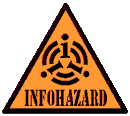"They stole our revolution, now we're stealing it back" (c) www.ntk.net
Now here's the technical bit. Two open standards based on XML have appeared called XML-RPC[7] and SOAP[5][6] (with SOAP a superset of XML-RPC). They are very simple protocols that let a program on one machine call a function on another machine. And in an elegant, simple and easy to implement way. There are tools available now in almost every programming language and validators to prove that the implementation is standard. But more than anything else these are open standards that don't belong to any one company and which it's going to be hard for any one company to pollute. It levels the playing field and allows small and large software companies to interoperate without having to kowtow to one "Owner of the standard" the way they did with MS COM, or Java RMI. If you want a Linux machine to talk to a desktop PC running MS Windows to talk to an IBM Mainframe, you can do it. There's a tentative schedule for an "Interoperathon"[4] in California in May-June to be a showcase for implementations to talk to each other and prove this.
While this is happening, another standard, "RSS"[8][9] is revolutionising the distribution of news. This is a very simple standard for publishing headlines, Nasdaq stock quotes, mailing lists and so on. But doing it in a way that it's easy for a program to read and do something with the data it finds. There's something like 5000 websites that publish an RSS feed, with more every day and increasing numbers of programs[10] that do things like aggregate, sort or present the detail.
So what has this got to do with Business and B2B? Well one of the bigger problems the B2B industry faces is integration. From suppliers to customers, from buyers and sellers to marketplaces, from marketplace to marketplace and so on. SOAP and XML-RPC represent a real opportunity to solve some of these problems quickly, cheaply and easily. Meanwhile RSS, or a minor variant of it, has the potential to start to solve the catalogue distribution problem. If you're running a marketplace or providing a web B2B service, you should be following eBay's lead now. If you're a software vendor you should be building Soap, XML-RPC into your package now. If you produce news or a content management system vendor you should building in RSS. And if you're a customer, you should be demanding that the other players provide these tools. Now!
In a few years, when all the machines on the net are talking to each other, we're going to look back on Internet 2.0, the age of the web browser, and be amazed at how primitive it was.
MS and eBay
[1] http://news.cnet.com/news/0-1003-201-5114149-0.html?tag=lh
[2] http://biz.yahoo.com/rf/010312/n12352719_2.html
[3] http://www.line56.com/articles/default.asp?NewsID=2253
Interoperathon
[4] http://www.soapware.org/directory/4/calendar
Background
[5] http://www.soapware.org/
[6] http://soap.weblogs.com/
[7] http://www.xmlrpc.com/
[8] http://backend.userland.com/rss092
[9] http://blogspace.com/rss/
[10] http://radio.userland.com
[ << P2P Open Ratings ] [ Web Services >> ]
[ 0 comments ] [ G ] [ # ]




